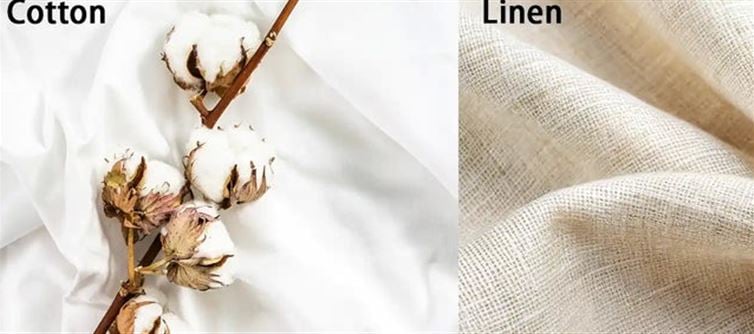
Conversely, cotton is well-known for being soft and adaptable. It is more affordable and resistant to wrinkles, which makes it a popular option for daily wear. But what about the scorching summer heat or fashion? You must consider the distinct advantages that each cloth provides in order to make an informed choice.
Major Takeaways
• Compared to cotton, linen is around 30% stronger and more resilient.
• Cotton is incredibly soft and comfortable, making it perfect for beds and daily wear.
• Linen is better for summer clothing since it is more breathable and moisture-wicking.
• Cotton can be used for a variety of purposes because it is readily accessible and reasonably priced.
• Cotton keeps its smoother appearance while linen wrinkles more since it is less elastic.
Benefits and Drawbacks of Linen
Because linen is roughly 30% stronger than cotton, it will survive for a long time. It absorbs up to 20% of its weight in perspiration and dries quickly because to its superior moisture-wicking qualities, which keep you comfortable and dry. Additionally, linen is antimicrobial and hypoallergenic, making it perfect for delicate skin. Due of its many advantages, linen should be used.
However, there are several disadvantages to linen. Because of its reduced elasticity, it wrinkles quickly and seems less polished. Its increased cost is also a result of its environmentally friendly growing and labor-intensive production method. Despite these disadvantages, many people find linen to be a desirable option due to its special qualities.
Benefits and Drawbacks of Cotton
Cotton is a popular material for beds and clothes because of its well-known breathability and comfort. It absorbs moisture nicely and feels smooth and gentle to the touch.
Cotton is appropriate for people with sensitive skin or allergies because it is hypoallergenic. It is also strong and resilient, withstanding several washings without losing its quality.
However, if not properly laundered, cotton can shrink and wrinkle easily. Additionally, it may eventually fade, particularly in direct sunshine. Cotton continues to be a popular and adaptable fabric in spite of these disadvantages.




 click and follow Indiaherald WhatsApp channel
click and follow Indiaherald WhatsApp channel